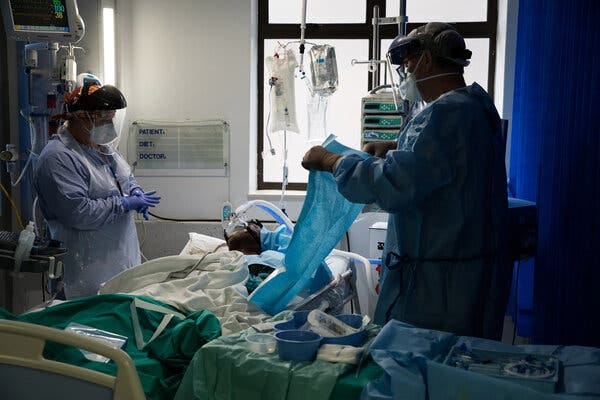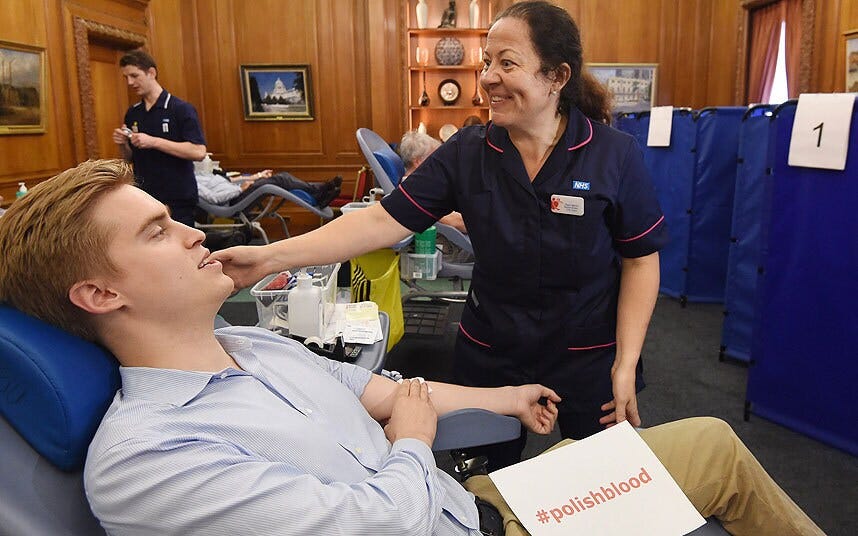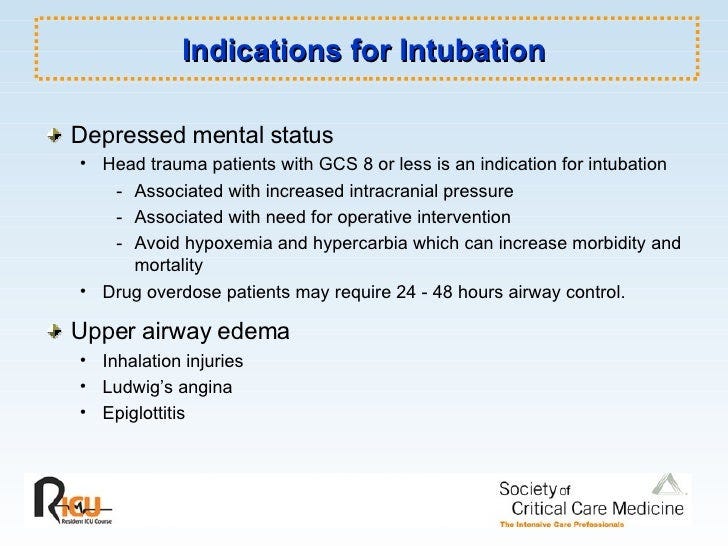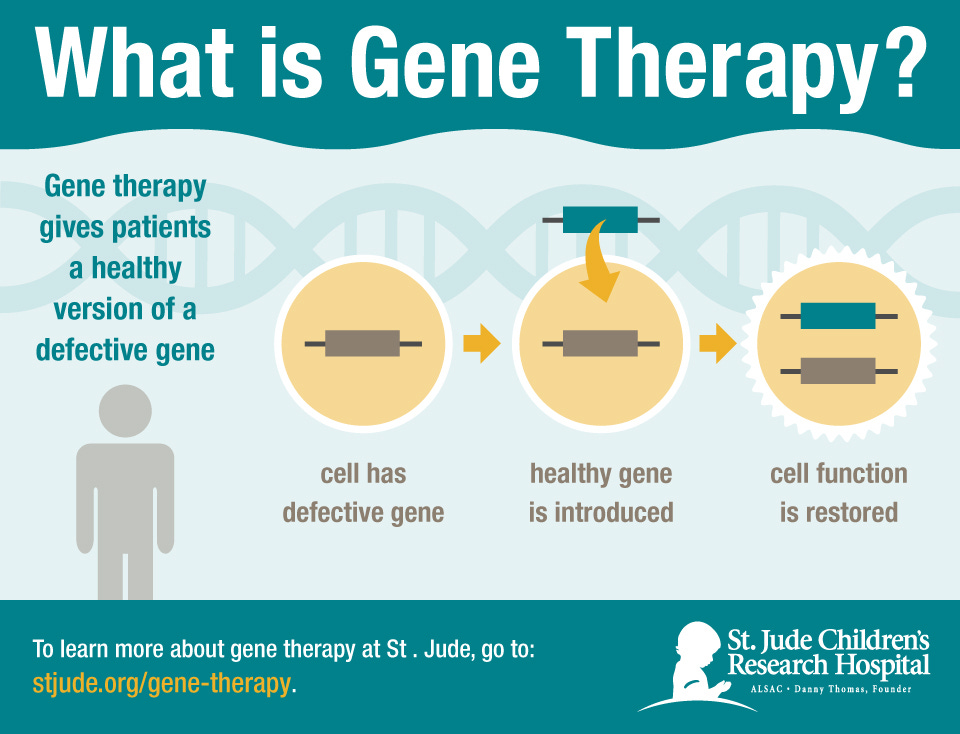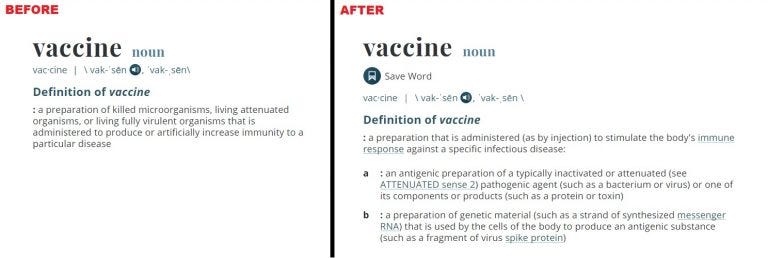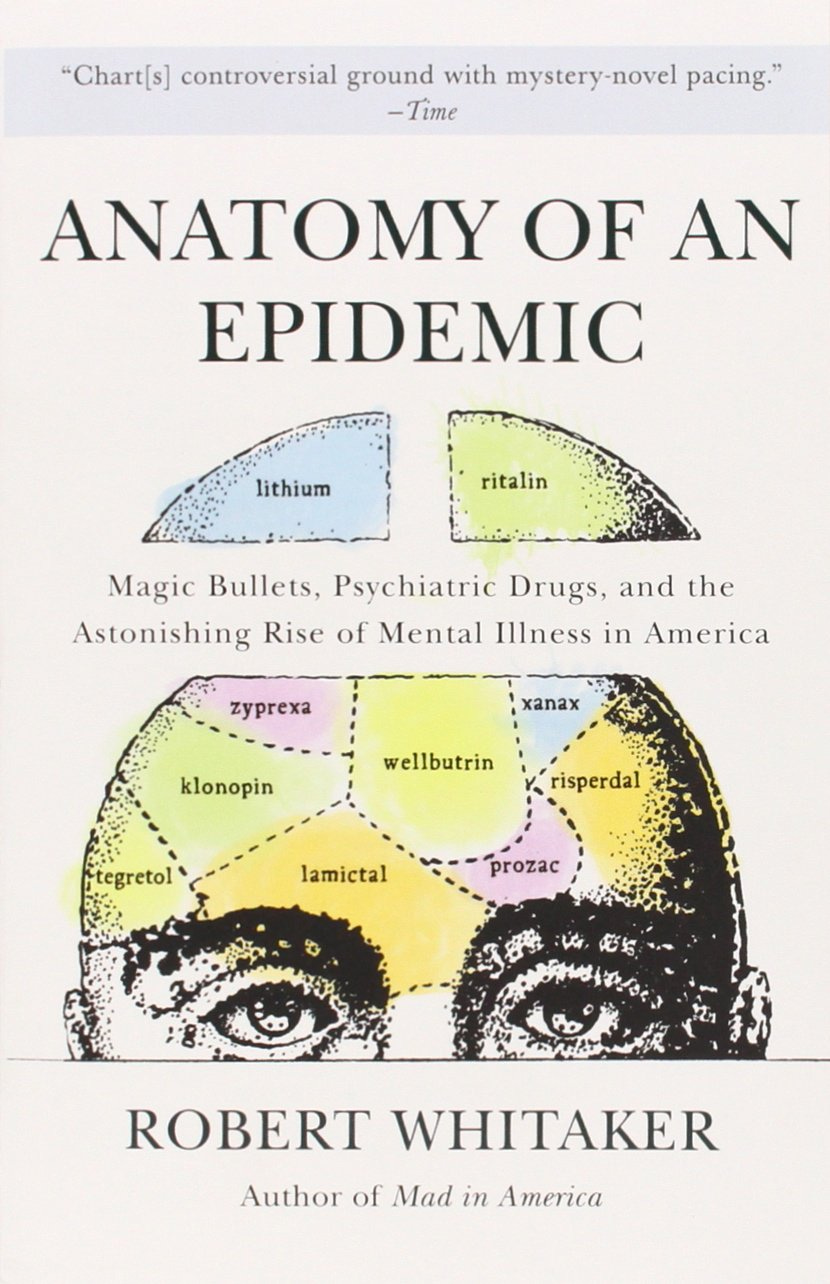Healthcare Lies, Bias & Advanced Directives
Questions & Answers on Interacting With a Corrupt Care System
Recently a patient asked me some very pointed questions about how to interact with our corrupt healthcare system and what to include in her medical advanced directives. The discussion served to highlight issues of bias and just how difficult it is to construct a full proof care plan in the event you should be incapacitated.
The best solution is always having another human being who knows what you would want and can make very difficult decisions based on edge case scenarios that are either unpredictable before they happen, or so numerous as to be impossible to properly enumerate - i.e. a health care proxy (HCP).
If you have a HCP you should have regular ongoing discussions to keep them updated on your evolving perspectives and just to check in to be sure their recollection of your perspectives hasn’t shifted over time - memory being unreliable and all.
Here is a smattering of the topics that came up for a patient who wanted everything possible done to keep her alive:
Should I say I am fully vaxxed and boosted?
The question here obviously applies to interacting with health care providers who don’t already know you and may treat you with bias due to your vaccine status. It becomes especially important if you are incapacitated, when a nurse can easily mistakenly or “mistakenly” (purposely) give you a vaccine “for your own benefit”.
It could refer to either COVID shots or all shots. For example upon writing computerized admissions orders, most electronic medical records nowadays automatically add orders for the nurse to administer a pneumonia vaccine and flu shot in the appropriate age groups, to be given on discharge if not documented as having already been done. Some EMRs may include a shingles vaccine, tetanus shot, and others since every year we add more and more to the schedule for both children and adults. Generally speaking if Medicare and private insurers decide to link payouts to some indicator of “good care” you can be sure hospitals will do everything to ensure that care happens. This includes automating it as much as possible, education staff on why it is so important and penalizing staff that do not do it. I haven’t worked in a hospital since the early days of the pandemic but I assume the COVID shots have now been added to the automatic order sets.
Should I ever allow anonymous blood transfusions?
The assumption here is that there is no separate unvaxxed blood supply. But beyond the COVID vax issue, our blood supply is also chock full of other toxins like pesticides. If you are at all carefull of what you eat (organic, pasture raised, etc), why wouldn’t you want to be at least as picky (if possible) about whose blood you get?
Ideally you would have banked your own blood ahead of time in the city where you live, or even in the main hospital where you might be taken in the event of an accident.
But even if you had prepared to such an extent in advance you might be travelling and most people live in cities with at least a few hospitals, if not dozens, and it might not be possible to move you to where your blood is in time, or even move your blood to you in time.
Second best is having family or friends you wouldn’t mind getting blood from and who would be happy to donate theirs to you (of course blood types can complicate things here).
One way of approaching this might be discussing your personal health situation with your primary care doctor and coming up with your own blood transfusion guidelines.
National guidelines have shifted over time, we used to routinely transfuse anyone who dropped below a certain hemoglobin concentration and then studies showed that might be harmful and we dropped the cut off a bit lower, but there are still variations depending on condition (for example do you have vascular heart disease?) and not all doctors follow the guidelines, some are behind the times and others just have their own personal algorithms.
Generally speaking transfusion guidelines may still be overly cautious and you might want to err on the other side of caution if you’re getting anonymous blood. Meaning discuss with your physician if there is an algorithm you can specify that allows your blood levels to drop a bit lower before pulling the trigger on transfusions, or perhaps takes into account other markers of oxygenation.
Ideally you would have a primary care physician preselected that could be called by hospital staff to guide transfusions in a non urgent situation based on all the details of your situation.
However in urgent or emergent situations if you are bleeding out from a large wound no one will check your blood levels they will simply give you blood to save your life unless your chart is marked Do Not Resuscitate (DNR) or Do Not Transfuse - like a Jehova’s witness for example.
By the way my residency director Dr Harvey Dosik was an accomplished hematologist of some repute who always said Jehova’s witnesses often survived hemoglobin levels that we would usually consider incompatible with life. Once blood counts plummet low enough bleeding sometimes slows down and may even stop and clot off, but survivability depends on a lot of variables. Most important being can you stanch the bleeding. Some internal hemorrhaging can be very difficult or even impossible to stop quickly. In some instances you may need your entire blood volume replaced many times over before your out of the woods.
Bottom line: if your life is more important to you (as it should be) than your health, you should allow blood transfusions and just deal with the consequences later rather than wake up in the next world with regrets.
Should I ever allow intubation?
The assumption here is that intubation is always and everywhere bad, since so many people were likely killed by intubation during the pandemic.
This is a faulty assumption. Intubation is not ideal, and usually causes some degree of harm, but in many cases it is unavoidable if uyou value your life.
There is a lot of variation in the protocols around intubation and some physicians will intubate when others would not. ER docs will usually err on the side of intubation. There are probably too many nuances here to have a rule book around intubation. Even in COVID some patients will not live without intubation and might survive to come off the ventilator if it is done.
For instance you might have head trauma, or a medication overdose that suppresses your brains breathing centers. Or you might have COPD and a dangerous buildup of carbon dioxide that does the same. You could be paralyzed due to an injury. And there are innumerable other situations where quick intubation could save your life.
Since I don’t trust the modern FDA should I set a cut off date after which I disallow the use of any future FDA approved medications, or maybe just EUA medications?
Again it’s always best to have a trusted physician who can guide treatment decisions in the hospital, but even without that I wouldn’t go so far as to refuse all FDA approved medications out of hand. First of all the FDA has long been corrupt and has a long history of making some very big mistakes that in the worst cases lasted decades.
But medicine is personalized and what might be ruled out based on a risk benefit analysis for one person, might be ruled in for another.
And there are always off label uses to consider. A new molecule might not be the best option for treating the disease it was approved for, but it might be just the thing for something else.
I sympathize with the sentiment but unless you’re opposed to all medications I wouldn’t rule out certain ones based on somewhat arbitrary rules.
You could consider discussing specific medications for specific indications with your PCP like remdesevir for COVID, or psych drugs for agitation (see below), or gene therapies as vaccines (see next), etc.
Should I refuse all gene therapies?
This is a tricky question and depends on whether you value your life over the sanctity of your genome. I suppose in the most extreme cases of sci fi “gene therapy” someone might consider themselves to be no longer themselves after gene therapy, so might equate it as a kind of death in itself.
But generally speaking gene therapies will not change you so much that you won’t be yourself anymore.
Someone might oppose them on moral grounds, but from the perspective of your health it is conceivable that we might soon develop gene therapies that are useful and good.
We already have proven gene therapies in animals and many approved gene therapies in humans primarily for various cancers and genetic diseases. It is possible that gene therapies can be repurposed for non genetic disorders - the drawback is of course lack of long term safety data, but if the question is truly between life or more data you might reasonably choose life.
For example what if you develop severe Alzheimers and lose your mind, then 10 years later there is a gene therapy cure or even palliative discovered? Would you want to be woken up from your vegetative state or left to die?
Of course it can be presented that way and be a false dichotomy, as it was during the COVID pandemic. The COVID shots were an attempt at saving lives that failed miserably. So again it always pays to have your own trusted expert on your side.
I’m not sure what I would write in my advanced directive on this topic other than ruling out the existing ones (perhaps if I had cancer and Adam Gaertners very simple cancer treatment failed I might consider a gene therapy).
And the FDA and CDC can always move the definitional goal posts on you in whichever directions suits them, todays hormone might be tomorrows gene therapy and todays gene therapy might be redefined as tomorrows run of the mill therapy.
Should I refuse all psych drugs?
I generally distrust all psychiatric drugs. But where do you draw the line? Lithium is a trace element important for human health, and in super physiological doses has long been used to treat bipolar disorder. There are people with inborn errors of metabolism that need super physiological doses of particular B vitamins to stay alive let alone in good spirits. Are lithium and B vitamins still vitamins in those cases? Or are they drugs?
The idea that psychiatric illnesses are primarily due to chemical imbalances in the brain that can be fixed with 1 size fits all drugs is an extreme and harmful over simplification of reality.
Research has shown psychiatric drugs for depression and anxiety may simply be active placebos, and may in fact worsen the underlying conditions over time.
Some may have positive acute effects - for example benzodiazepines certainly calm down anxious people in the short term, but in the long run they worsen anxiety. Similarly with drugs used for agitation and schizophrenia. Older research suggests that the vast majority of schizophrenics used to recover significantly within a couple years before the use of anti psychotics and now the vast majority never recover.
The problem is really a universal issue in modern western medicine of treating secondary manifestations rather than the underlying problems.
When you suppress secondary manifestations they generally get worse because the body is sending a message and you are telling it to shut up. It will just yell louder.
In hospitals drugs are often preferred to calm down agitated delirious patients.
The alternative is to tie them down to their beds. This seems inhumane, but I would prefer to be tied down rather than shot up.
The reason is that the medications used can linger in your system, make the delirium worse and prevent you from coming back to your senses. So higher doses are given and you become even knocked out and even more confused. They can also suppress your breathing and if over done get you intubated - I have seen this happen many times, especially when the patient was also being given narcotics for severe pain (see recently disclosed NICE guidelines out of Britain revealing the traditional narcotics and benzos combo used for palliative care to provide a comfortable death was being routinely given to patients with COVID - the drugs aren’t meant to euthanize people, but they certainly can and in many cases there is a fine line that you cannot really see between keeping someone comfortable as they die and actively helping them along into the next world).
Psychiatric drugs are primarily used to make the lives of nurses easier, so they will almost always request them and usually very strongly.
They are often added automatically (or routinely selected by physicians) as parts of admission order sets in the prn (as needed) section:
if fever or mild-moderate pain give tylenol, if severe pain give morphine, if agitation give ativan, if insomnia give ambien.
But whether you should always and everywhere refuse psych drugs is a more complicated question: the SSRIs fluvoxamine and prozac were used to good effect for brief intervals in both acute COVID and long COVID/Vax injuries. I would never want to take them for their usual FDA indications of depression, anxiety or OCD, but I would consider them in the short term for something else, especially if there were no other good option:
for instance there was a period during the pandemic when hospitalized patients could not get their hands on ivermectin, hydroxychloroquine or any other useful drug for their COVID infections, unless they complained of depression or anxiety and requested fluvoxamine or prozac - “hey doc I’ve been really depressed the last few months, I used to take prozac and it really helped, can you order it for me now?” - this request was almost gauranteed to be honored.
SO NOW WHAT?
Unfortunately there are no easy answers to most of these questions. The best case scenario is being prepared with your own blood stockpiled, a PCP who you trust that can see you in your local hospital, and close friends and family who can stay by your bedside 24/7 and make sure nothing untoward happens while your out.
But we can only do what we can with what we have.
Keep fighting for medical freedom and try to educate as many people as possible about the tyranny we all face.



